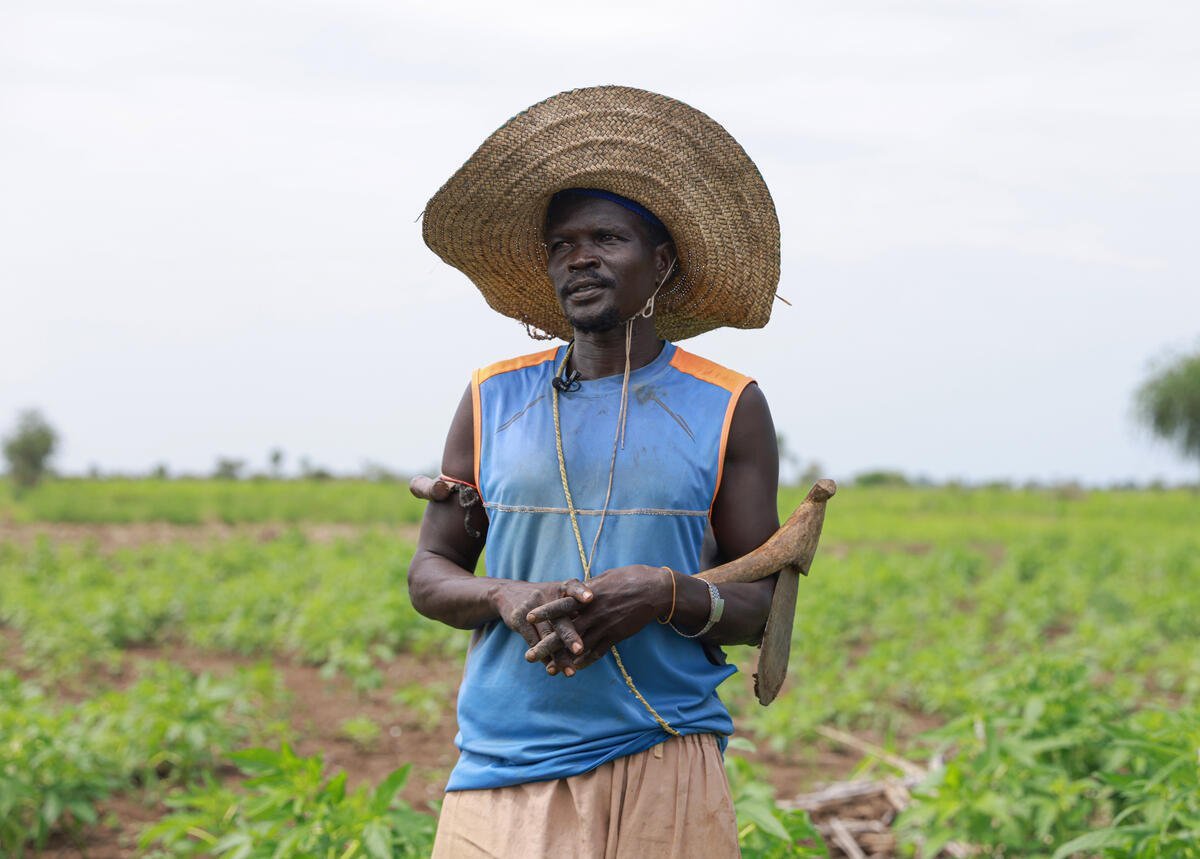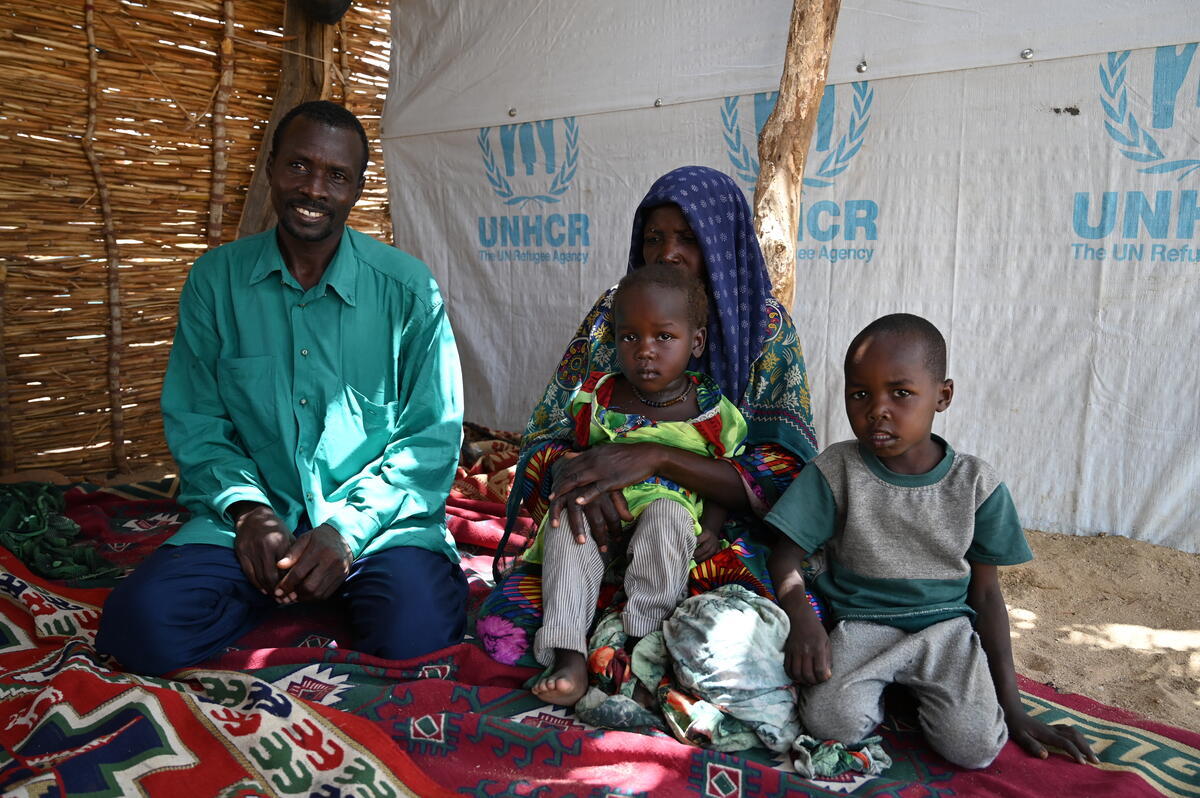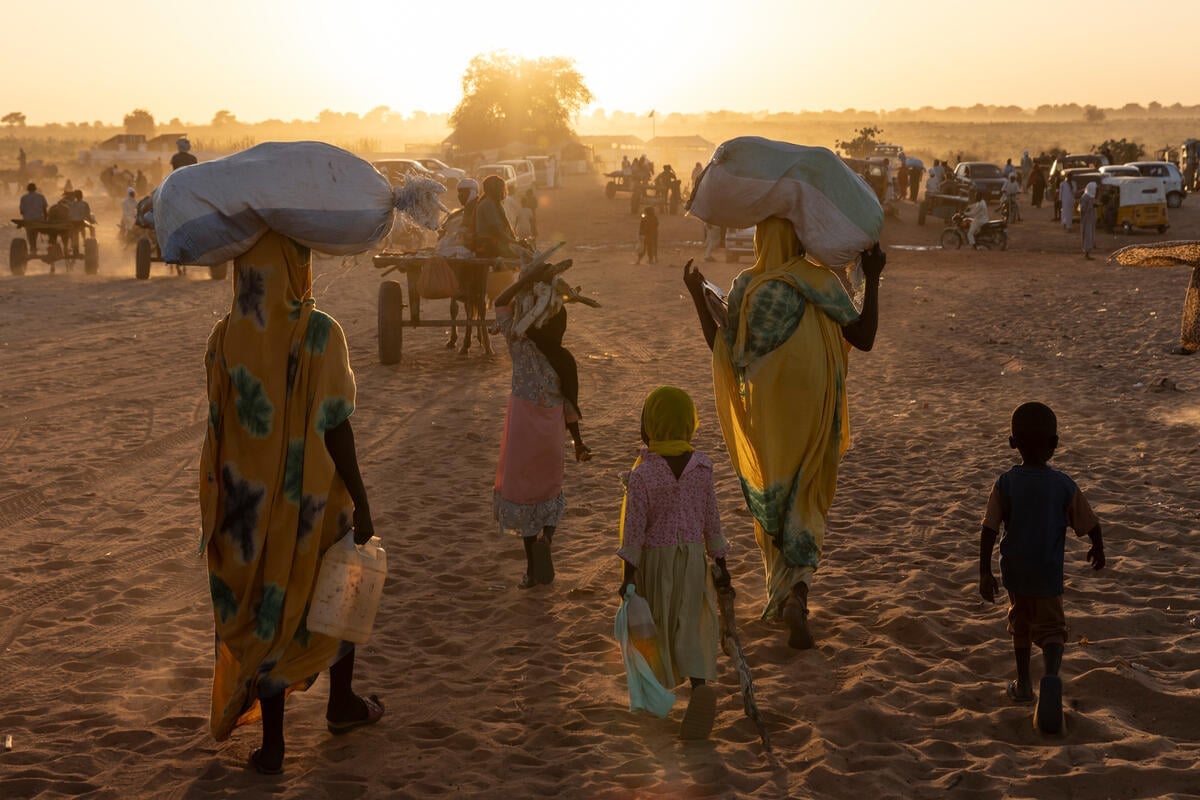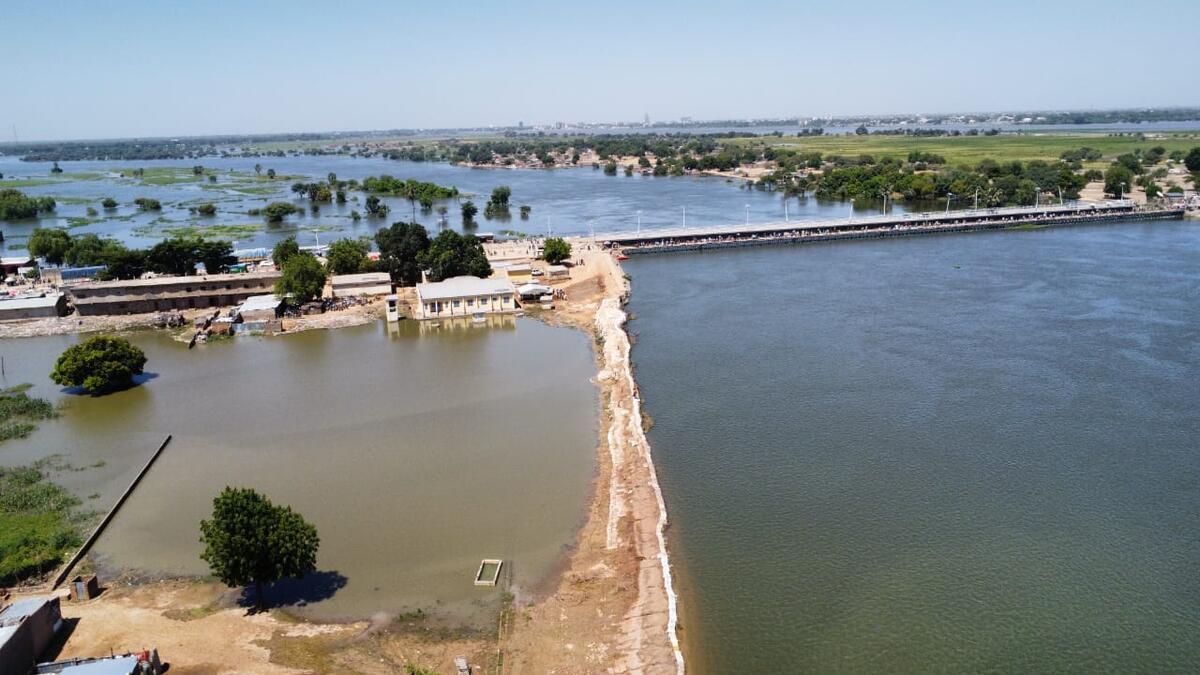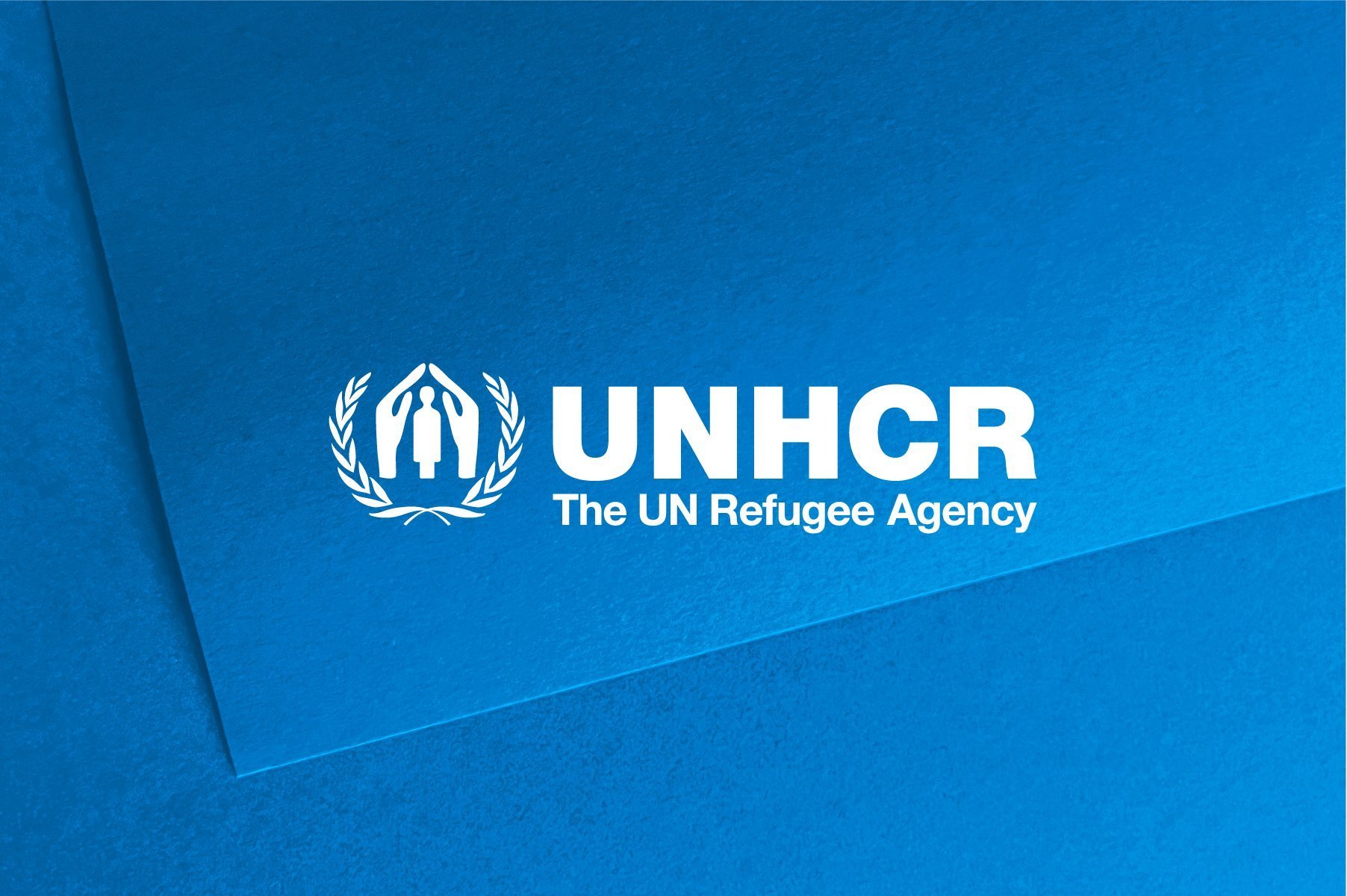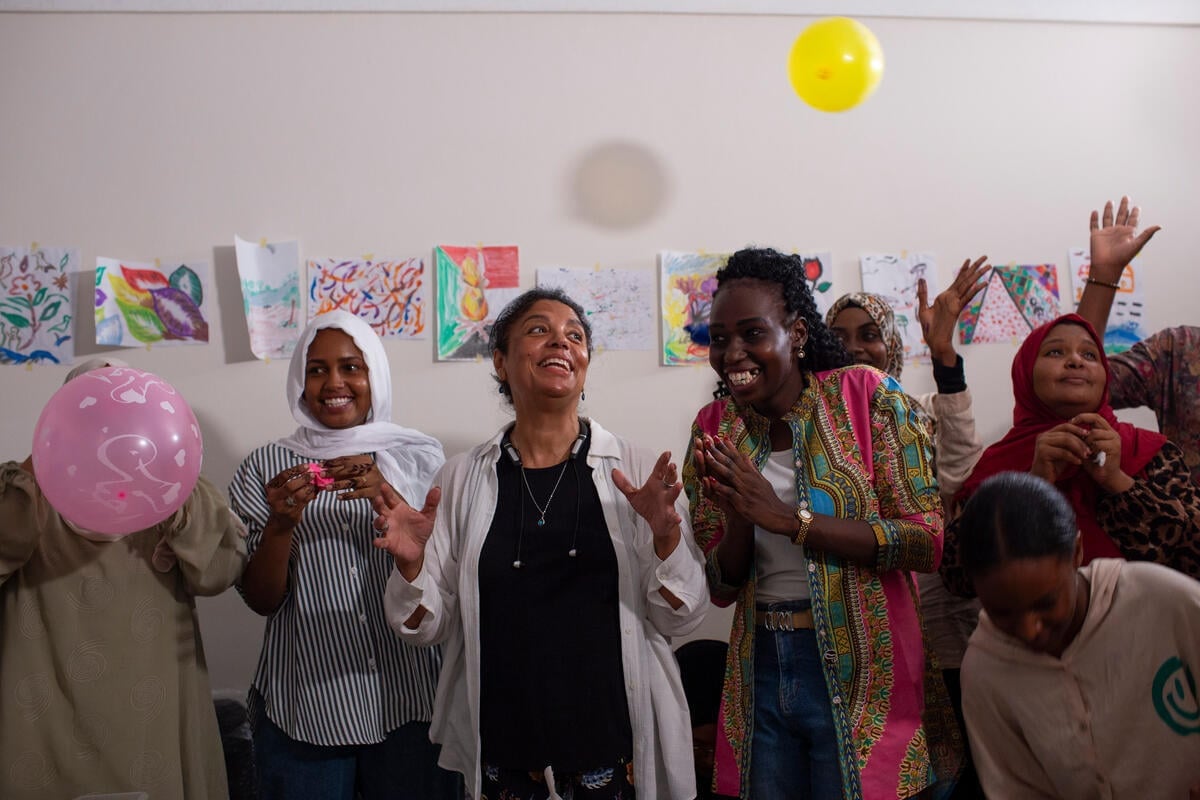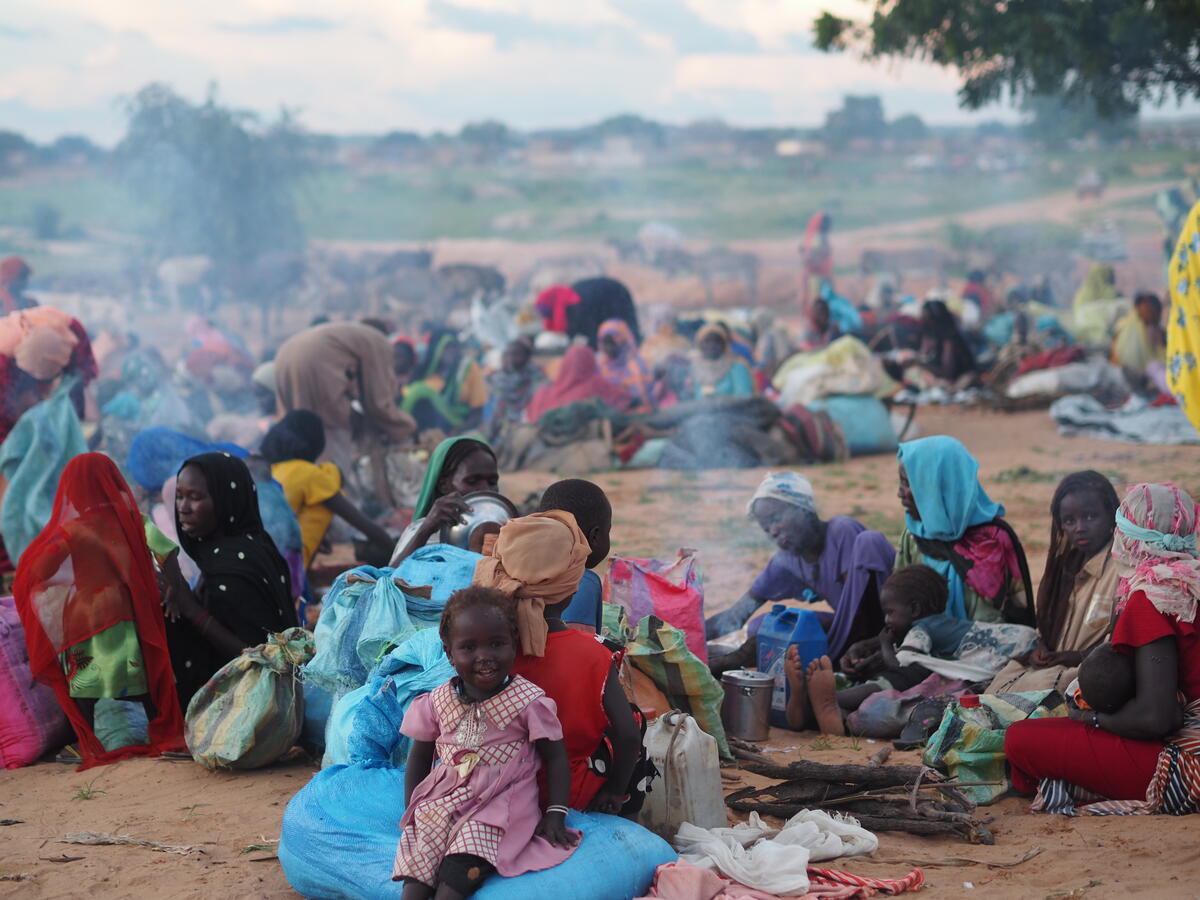Chad: French military airlift cuts transport time to eastern camps
Chad: French military airlift cuts transport time to eastern camps
Humanitarian supplies flown into Chad from Denmark as part of UNHCR's ongoing emergency airlift for the Sudanese refugees are now being airlifted by the French military to the eastern Chadian town of Abéché. The French military began airlifting some 40 metric tons of humanitarian material over the weekend from N'Djamena to Abéché. The airlift, on French Hercules C-130 aircraft, is drastically cutting transport times out to the east for the supplies, which otherwise would have to come in by truck over roads in very bad condition. Once unloaded in Abéché, the materials are being flown to the refugee camps on French Puma helicopters. The airlift, which began Saturday, is scheduled to run through until today, Tuesday. France maintains two military bases in Chad, one in the capital of N'Djamena and the other in Abéché.
The airlifted supplies include cholera medical kits, badly needed telecommunications equipment to improve communications in the vast border zone where the refugees are hosted, basic medical kits, fuel bladders and other relief items. UNHCR is prepositioning the cholera kits in camps near the towns of Adré, Iriba and Goz Beida to allow for a speedy response to any possible outbreak of the disease, which can kill up to 30 percent of people infected.
Meanwhile, work on a new camp at Treguine is scheduled to begin tomorrow. The International Federation of the Red Cross, which will manage the camp, estimates the preparations should take about one month. Treguine is expected to shelter 17,000 refugees, with some 7,500 of these coming from areas close the border. Thousands more refugees will be transferred to Treguine to decongest the camp at Breidjing.
More than 144,500 refugees are in UNHCR's nine camps in eastern Chad. A further 6,300 refugees have made their own way to Breidjing camp and an estimated 14,800 are at Am Nabak site away from the border. A new count of the refugees at Am Nabak is scheduled to begin today, Tuesday, to verify widely differing estimates of the numbers. The verification will take place during food distribution, when new identification cards will be issued to the heads of families.


